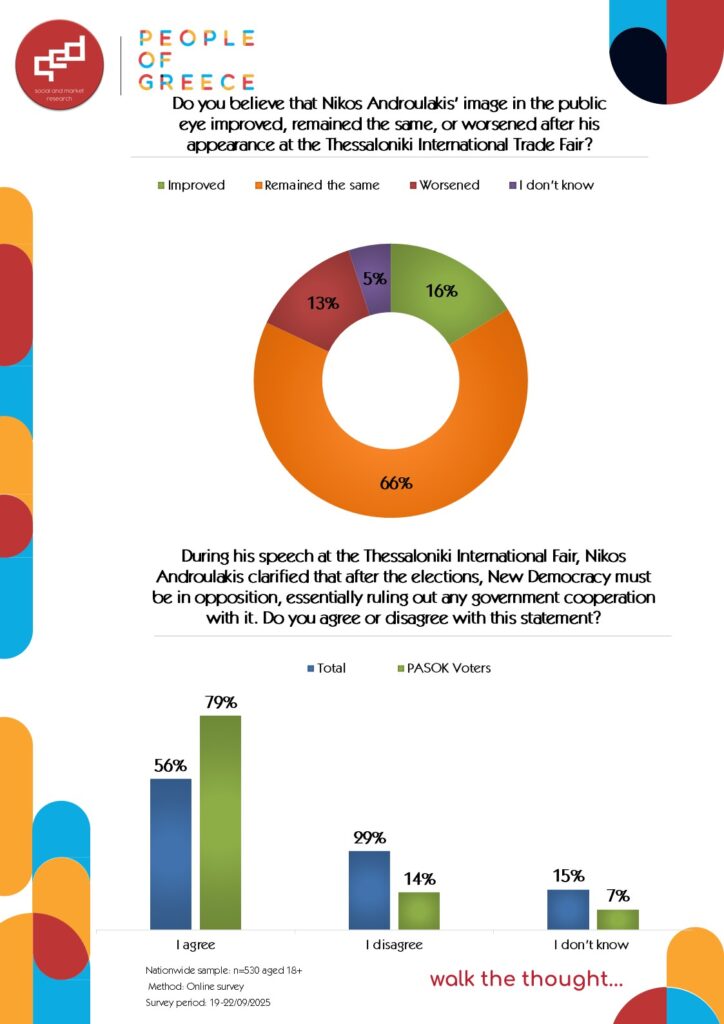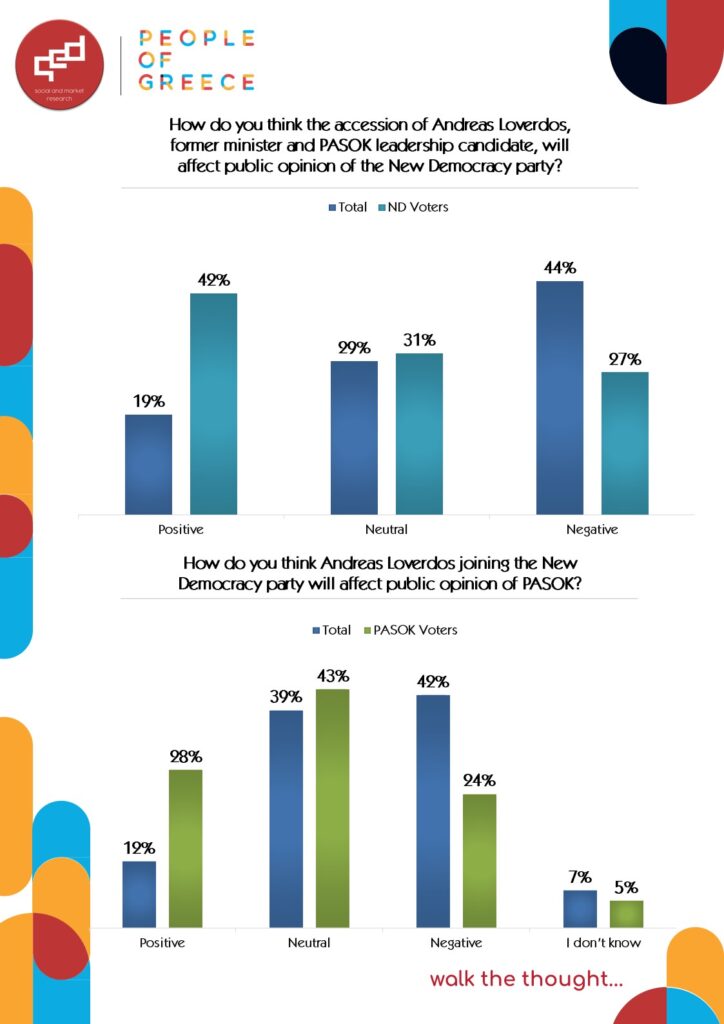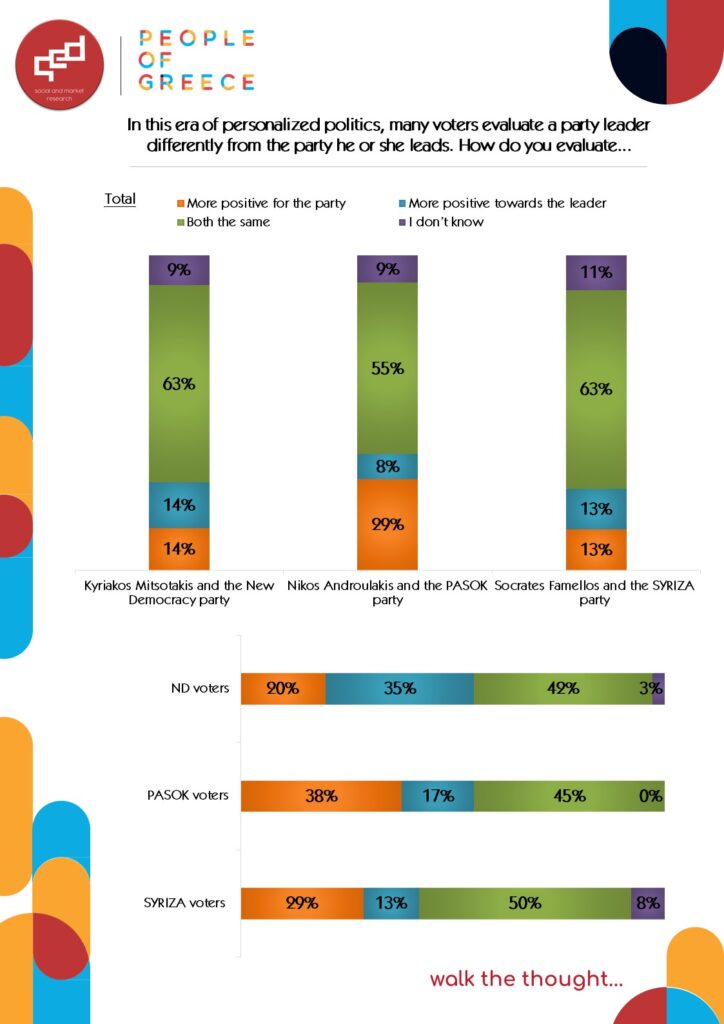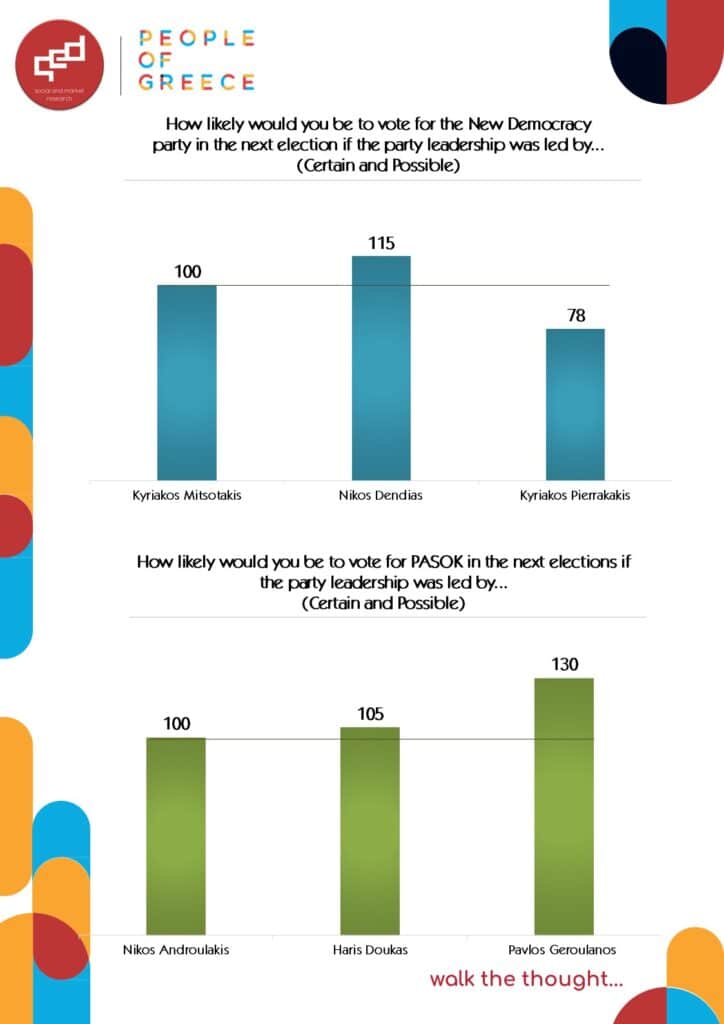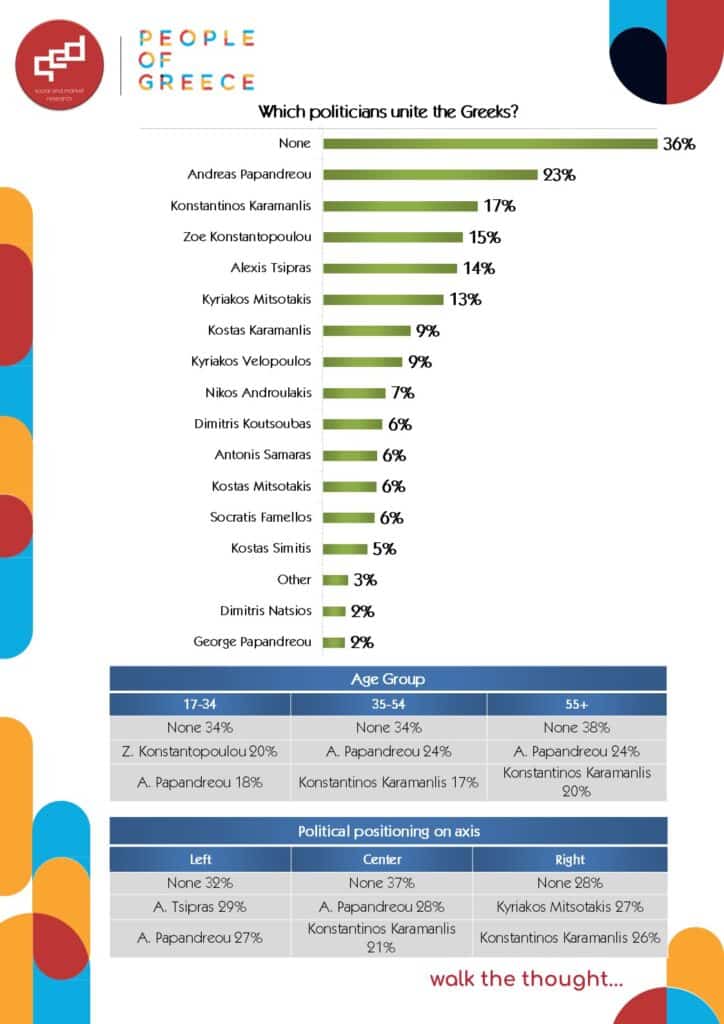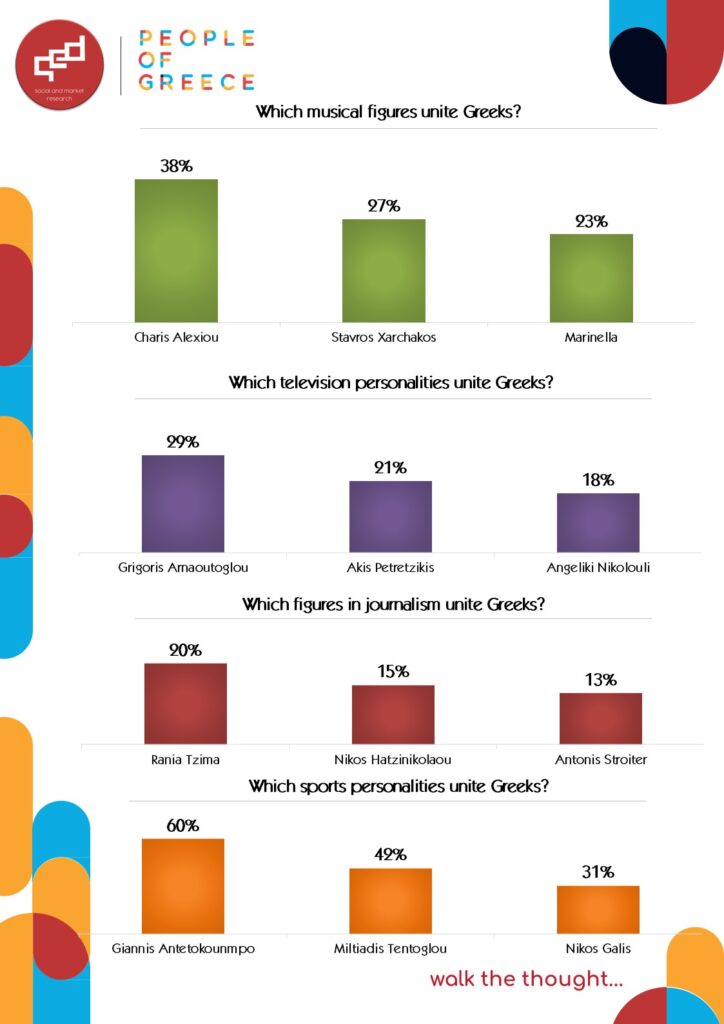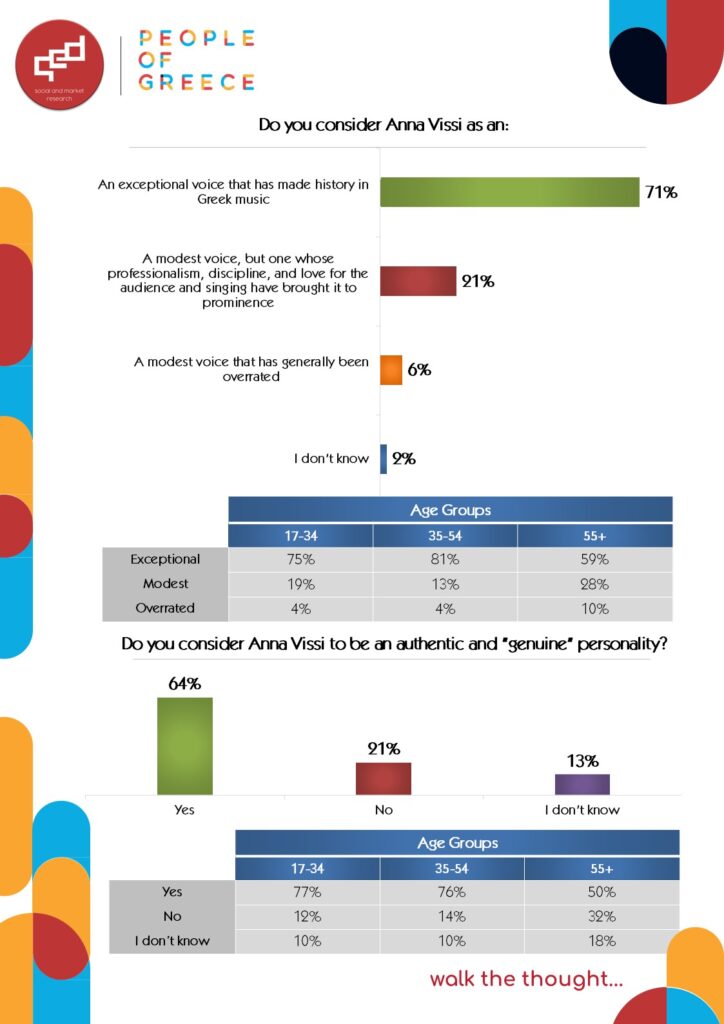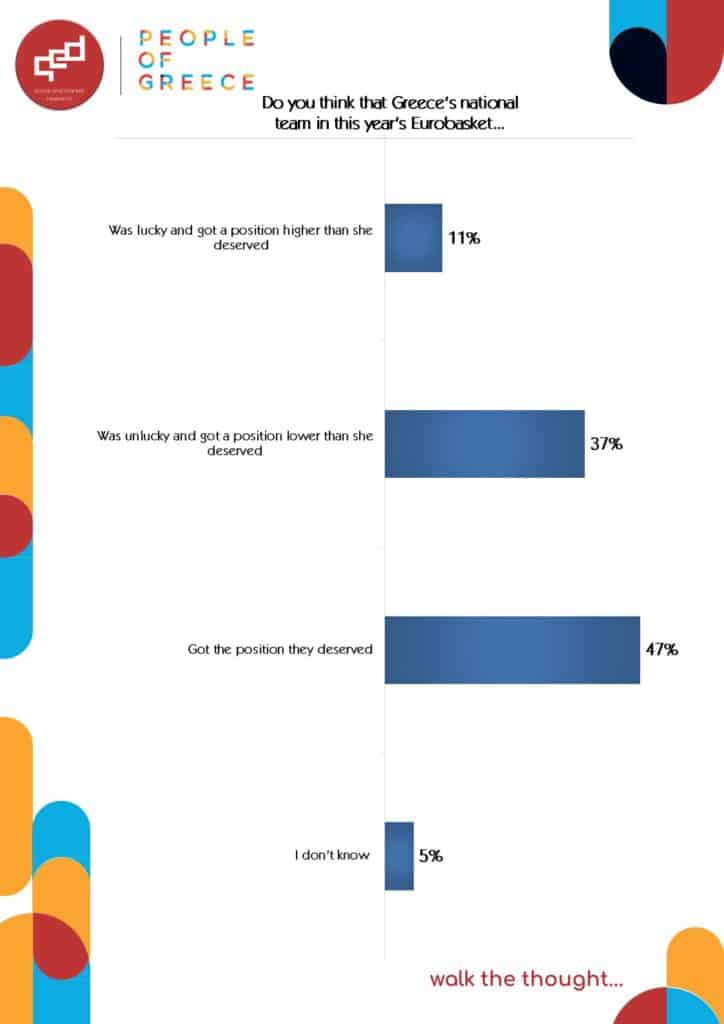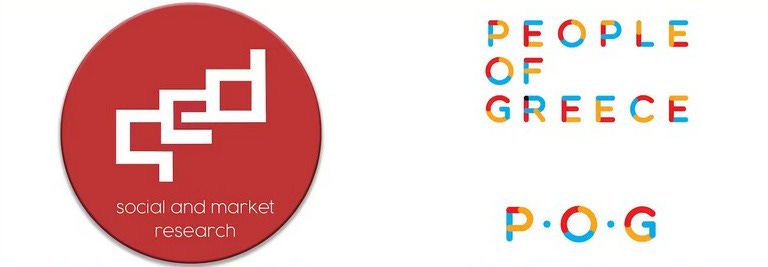
Week 17-24/9:
This week, Greeks watched:
- the temperature rise within New Democracy and PASOK due to statements hinting at disagreement with the choices made by each party’s leadership,
- former PASOK minister and former candidate for the party leadership Andreas Loverdos joining New Democracy,
the national basketball team returning from this year’s Eurobasket with a bronze medal in its luggage, - Anna Vissi performing two sold-out concerts at the Panathinaiko Stadium.
What do we learn about Greece and the Greeks from this week’s findings?
- The presence of the PASOK leader at the Thessaloniki International Fair does not seem to have made a significant impression on public opinion, even though his view that New Democracy should be excluded from government coalitions is shared by the majority of the public and is even endorsed by three-quarters of PASOK voters.
- Citizens are skeptical of political moves such as those made by Andreas Loverdos, which they perceive as opportunistic rather than strategic.
- Political leaders tend to be evaluated in the same way as the parties they represent. However, compared to Kyriakos Mitsotakis, Nikos Androulakis and Socrates Famellos fall short of their party’s ratings, according to their voters.
- The search for alternative leaders (Nikos Dendias in New Democracy, Pavlos Geroulanos in PASOK) reveals a society seeking renewal in terms of personalities and style.
- Very few political figures, and those mainly from the past, are considered unifying for Greeks – such as Andreas Papandreou and, marginally, Konstantinos Karamanlis.
- Greeks do not expect unity from politics, but from other spheres of public life. In the field of music, Haris Alexiou stands out as the most unifying figure, with newer faces such as Anna Vissi and LEX particularly appealing to younger generations. On television, “beloved” figures who exude simplicity and familiarity (Grigoris Arnaoutoglou, Akis Petritzikis, Angeliki Nikolouli) are considered unifying. In sports, Giannis Antetokounmpo almost perfectly embodies the concept of a “unifying” symbol, with Milto Tentoglou and Nikos Galis completing the picture.
The attitude towards the national team’s performance at Eurobasket reflects a dual national mentality: on the one hand, realism and self-criticism (“we got what we deserved”), and on the other, a timeless sense of victimization (“we were wronged”). - The long-standing and intergenerational acceptance of Anna Vissi, which starts with Gen Z and extends almost to the Boomers, is due not only to her voice but also to the authenticity of her character.
What did the research showed?
